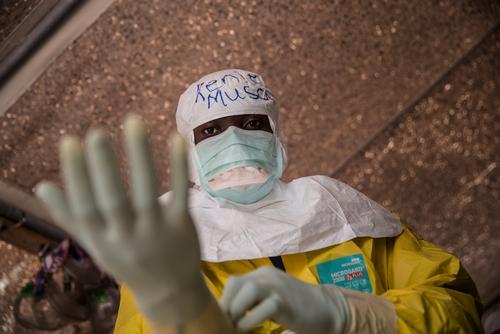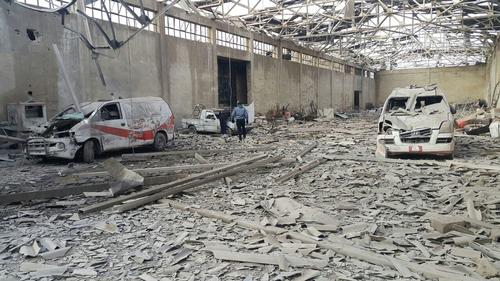Ahead of the G20 Summit in Hamburg, where global health is on the agenda for the first time, the international medical humanitarian organisation Médecins Sans Frontières (MSF) called on G20 leaders to follow through on the declaration made by their health ministers in late May.
MSF welcomed the acknowledgement by G20 health ministers in their declaration that critical health issues such as drug-resistant infections, including tuberculosis (TB), and attacks on medical facilities and personnel in armed conflict must urgently be addressed. G20 leaders now need to turn words into concrete action.
“The most powerful governments in the world must commit to urgently implementing policies that will prevent and alleviate unnecessary suffering of people all around the world,” said Florian Westphal, General Director of MSF Germany. “The G20 leaders need to improve people’s access to medical care and turn their words into action.”
MSF asks the G20 leaders to take action on the following issues:
Attacks on medical facilities: turn UN Security Resolution 2286 into concrete actions
From Yemen to Syria, and from South Sudan to Afghanistan and beyond, health facilities are being looted, burnt and bombed by state and non-state parties to conflicts, resulting in the deaths of civilians, including patients, doctors and nurses. Such attacks deprive hundreds of thousands of people of the basic health services they need.
One year since the UN Security Council adopted Resolution 2286 on the protection of the medical mission, and the Secretary General’s proposals to implement it, medical workers are still no safer.
“While the G20 Health Minister’s Declaration condemned attacks on medical personnel and facilities, these governments must demonstrate their commitment to turning UN Security Council Resolution 2286 into concrete action by immediately stopping attacks on medical facilities and allowing for the impartial delivery of health care in conflict, according to medical ethics,” said Florian Westphal. “The protection of medical facilities and personnel in conflict should be formalized in national laws, war manuals and the rules of engagement of armed forces.”
TB and drug-resistant infections: investing in research and development (R&D), and making treatments affordable for all people
From the war-wounded in Jordan, to newborns in Pakistan, to burn patients in Haiti, to people with multidrug-resistant TB in South Africa and Eastern Europe, we see drug-resistant infections across the globe—including those that can only be treated with the very last lines of antibiotics. One of the challenges with antimicrobial resistance (AMR) is the lack of new antibiotics, as for decades pharmaceutical corporations have been turning away from R&D for new antibiotics, leaving few new options in the pipeline.
The G20 health ministers acknowledged that the fight against TB—the deadliest of all drug-resistant infections—must be central in the fight against AMR, and that much more must be done to jumpstart R&D for new antimicrobials, vaccines and rapid point-of-care diagnostic tests that prioritise people’s needs and are affordable to all people, wherever they live.
“G20 leaders must increase domestic and international research efforts to develop new tools to tackle drug-resistant infections, particularly tuberculosis, and ensure these tools are available and affordable for all people in need,” said Dr Els Torreele, Executive Director of MSF’s Access Campaign. “In line with their commitments in the UN High-Level Declaration on AMR, governments must prioritise R&D according to people’s needs, and ensure that medicines developed with public funding are affordable and accessible to all people, by ending the reliance on high prices and monopolies to pay for innovation.”

Emergency preparedness and response
When the Ebola outbreak in West Africa was declared in 2014, only a handful of governments and organisations, including MSF, responded. G20 governments should support the World Health Organization (WHO) in ensuring that affected people are at the centre of emergency and outbreak response, and make the needed resources available for WHO to carry out this role, working closely with national authorities. Countries must have incentives to declare outbreaks to WHO quickly and transparently, to allow a coordinated and efficient response. Additionally, preparing for emergencies should not be limited only to infectious diseases that are seen as potential threats to rich and powerful countries, but should include health emergencies that affect the most marginalised and vulnerable people.
The G20 Health Minister’s Declaration acknowledges the importance of the Coalition on Emergency Preparedness Innovations (CEPI) and the need for R&D to address emerging infectious diseases. G20 Leaders should take this commitment one step further, and guarantee new tools developed to respond to medical emergencies are affordable and accessible to all people in need.



